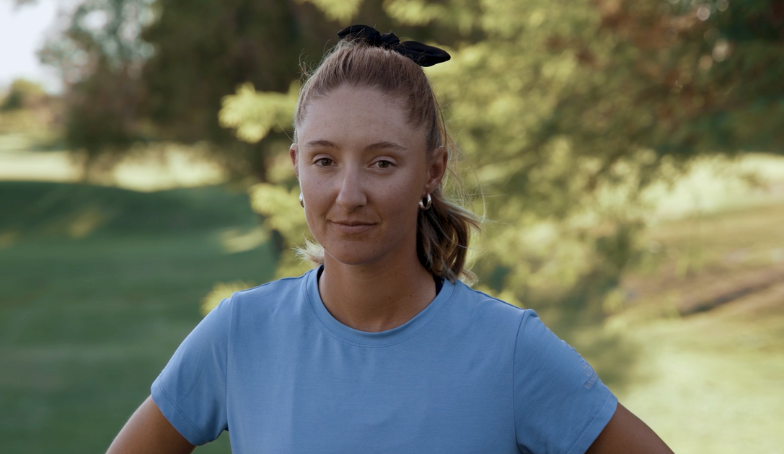According to professional golfer Zoë Walker, most of her fellow female competitors feel the same way about male athletes being allowed to compete in prestigious women’s tournaments: “uncomfortable.”
Yet despite growing discomfort among female golfers, the Ladies Professional Golf Association (LPGA) hasn’t deviated from its 2010 policy permitting trans-identified males who have undergone wrong-sex hormone therapy and surgery to compete in the women’s division.
As a result, Walker and hundreds of other female golfers were forced to compete at this year’s LPGA Qualifying School (Q-School) against Hailey Davidson, a trans-identifying male who has won at least two women’s golf events. Davidson did not earn a spot on the LPGA Tour but did earn Epson Tour status for 2025.
Walker argued the LPGA’s policy allowing males such as Davidson to compete for women’s titles degrades the hard work women like her have put into the sport to be able to compete at the highest level.
That’s why Walker and many other female professional golfers have chosen to take a stand.
In an open letter to the LPGA this year, Walker and more than 275 other female pro golfers urged the organization to change its transgender participation policy and keep women’s golf female.
“It is essential for the integrity and fairness of women’s golf to have a clear and consistent participation policy in place based on a player’s immutable sex. There are differences between the sexes—female and male—that specifically affect our sport of golf,” the women wrote.
The LPGA is set to release new guidance on trans-identifying athletes this month.
For Walker, preserving the integrity of women’s golf is about more than just fair competition — it’s about honoring the many sacrifices she and so many other female athletes have had to make to get to where they are today.
After taking up golf in her sophomore year of high school, Walker went on to play for the University of Georgia, where she was team captain during the 2021-22 season. Along the way, Walker also started her own small business, Zalea’s Golf Co, selling golf head covers hand-sewn by her, her mother, and her grandmother.
“It was choosing in college, whether to go out with friends or go work on my game and just being in the school room studying, making sure my grades were good to be able to compete in college,” she said.
This hard work paid off in 2024 when Walker earned her opportunity to compete on the ANNIKA Women’s All Pro tour (WAPT). Her hope is to eventually qualify for the LPGA Tour as well.
But the LPGA’s transgender policy is yet another hurdle for female golfers such as Walker.
“Competing with biological women is important to me,” she said. “We have all worked hard to be in the position to compete at some of the highest levels, and it is uncomfortable to see biological men come in and play the part of a female –– in any sport, not just golf.”
According to Walker, there are massive misunderstandings about why women are speaking out against trans-identifying athletes competing in women’s sports. They’ve been accused of being hateful or “not accepting,” but “that is not it at all,” Walker said.
Walker pointed to an example from her own life –– playing golf with her fiancé, a 6’2” man who she said has a ball speed of 175mph.
“We play golf together every week, and I love it,” she said. “However, playing up a few tee boxes only levels the playing field until we get to the fairway, where I am pulling a seven iron, and he is pulling a pitching wedge. Of course, we can still compete and have fun, but statistically speaking, he is likely to hit the ball closer to the pin and convert more birdies than I am.”
While men and women can work at the same game, Walker said the experiences and outcomes are “different in the grand scheme of things” because women are built differently than men. But Walker urged aspiring female golfers not to let those differences cloud their aspirations.
“Be confident in who you are,” she said. “Don’t be afraid to take a stand and just know that you’re not alone because topics like this can be super sensitive, but there are more people that are like-minded, like myself and so many girls out here on the tour, that feel the same way.”









